 A Cast of Falcons by Sarah Yarwood-Lovett
A Cast of Falcons by Sarah Yarwood-Lovett Format: ebook
Source: purchased from Amazon
Formats available: paperback, ebook, audiobook
Genres: cozy mystery, mystery
Series: Dr Nell Ward #2
Pages: 380
Published by Embla Books on October 26, 2022
Purchasing Info: Author's Website, Publisher's Website, Amazon, Barnes & Noble, Kobo, Better World Books
Goodreads
When the wedding of her oldest friend ends with a shocking murder, Dr Nell Ward is once again caught up in a web of subterfuge, secrets and lies...
When her childhood friend Percy announces she's engaged to handsome businessman Hawke McAnstruther, Dr Nell Ward rashly offers to host the wedding at Finchmere, her family's estate. But she hadn't anticipated Percy's parents' fiery disapproval of the groom.
The ceremony is barely over before Hawke's shady personal and professional life starts to unravel, and tension ripples through the assembled guests. When the wedding night ends with a shocking death, Nell, best-friend, Rav and DI James Clarke all find themselves embroiled in a murder mystery worthy of Agatha Christie.
Surviving a terrifying threat to her own life, Nell has to face up to the truth. Not just about murder at Finchmere, but about where her heart truly lies...
My Review:
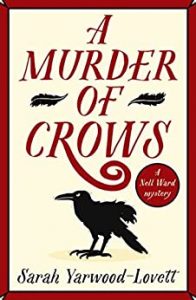 It really couldn’t have happened to a more deserving fellow. Unfortunately the same can’t be said for whoever did the world a favor by bashing Hawke McAnstruther over the head before he could do any further damage to Nell Ward’s best friend Percy and her family.
It really couldn’t have happened to a more deserving fellow. Unfortunately the same can’t be said for whoever did the world a favor by bashing Hawke McAnstruther over the head before he could do any further damage to Nell Ward’s best friend Percy and her family.
Which is also, come to think of it, Nell Ward’s family – just at a bit of extension.
It IS too bad, however, that whoever eliminated Hawke from the gene pool before he could contaminate it further, the arsehole (they’re all Brits, only arsehole will do) did the deed at Nell’s family estate, Finchmere, just hours after the conclusion – the epically awful conclusion at that – of Percy’s wedding to the bastard.
Luckily for Percy, she wised up to her new husband’s evil ways in those few scant hours between the ceremony and his spectacular fall from grace onto the floor two or three stories below. So it’s good riddance to bad rubbish – and at that point it might really have been a drunken accident.
The wealth, influence and titles of both Percy’s AND Nell’s family are more than enough to ensure that the official verdict reads exactly that.
The only person who will really miss Hawke is his mother Linda. But not for long, as sometime in the wee hours of the morning someone savagely slit her throat and impaled the murder weapon in her chest to make sure that the job’s been done.
HIS death COULD have been an accident. HER death absolutely could not be accidental, nor is there any scenario where it could have been self-inflicted. Even the police are able to draw the obvious conclusion that there is at least one murderer on the premises – and possibly two.
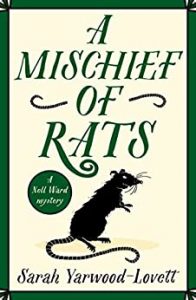 There are plenty of suspects for Hawke’s murder, as the man was a charming, conniving slimeball who left a trail of ruined companies and broken people in his wake – and clearly planned to do the same to Percy, her family, and her family’s properties.
There are plenty of suspects for Hawke’s murder, as the man was a charming, conniving slimeball who left a trail of ruined companies and broken people in his wake – and clearly planned to do the same to Percy, her family, and her family’s properties.
Motives and suspects abound for HIS murder, but for HERS, not so much. Leaving the police flailing, caught between compromised crime scenes, endless possibilities for sneaking around the stately pile without being seen, and more motives than they can shake a truncheon at.
But Nell Ward, as demonstrated in her first, and all-too-personal, investigation in A Murder of Crows, just can’t keep her nose out of the investigation. She might not be in the frame this time around, but her best friend and her extended family certainly are.
Even if that puts her on the opposite side of the investigation from her current boyfriend, Detective Inspector James Clark, and pushes her straight into the arms of her work partner and best friend Rav.
Exactly the place that Rav has always wanted her to be.
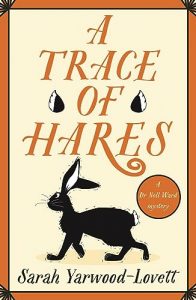 Escape Rating B+: The latest book in this series, A Trace of Hares, is coming out today. I’m reading this series from the beginning, so I’m not there yet, but I wanted to mark the day so here we are. I’m enjoying this series because I really like the protagonist, Nell Ward, and her geeky love of bats and owls as well as her personal and professional advocacy for ecology in general. Although, at least so far, she does seem to have a bit of Midsomer-itis.
Escape Rating B+: The latest book in this series, A Trace of Hares, is coming out today. I’m reading this series from the beginning, so I’m not there yet, but I wanted to mark the day so here we are. I’m enjoying this series because I really like the protagonist, Nell Ward, and her geeky love of bats and owls as well as her personal and professional advocacy for ecology in general. Although, at least so far, she does seem to have a bit of Midsomer-itis.
Admittedly, from where I’m reading, the series is only two books in and so far she’s been intimately involved with both murders. And based on the blurb for the next book, A Mischief of Rats, that streak of unbelievably bad luck is not running out any time soon. Which it really needs to, as no one’s luck is this bad.
But that’s more of an overall issue that will hopefully resolve itself later down the series. This particular entry in the series, however, was a whole lot of murder-y fun, in spite of the personal consequences for Nell. It’s pretty easy to be a bit gleeful in this one, as the first murder victim was an arsehole, the second murder victim, the arsehole’s mother, proved that his apple didn’t fall all that far from the tree, and frankly the eventual third victim wasn’t all that great an excuse for a human being either even if he was a member of Nell’s extended family.
The family of the suspects may not have been nearly as despicable as the Thrombeys in Knives Out, but comparisons could certainly be drawn.
In the first book, Nell displayed the geeky professional persona of Dr. Nell Ward, while keeping her aristocratic background – among other secrets – hidden for as long as she could. It wasn’t until the local police went so far as to actually arrest her for murder with only vague suspicions and circumstantial evidence that her alter ego of Lady Eleanor Ward-Beaumont, niece to the Duke of Aveshire, daughter of the Earl of Finchmere and his wife, Imelda Beaumont MP, and heir to Finchmere came out – along with her family’s expensive and effective legal counsel.
Not that any of the above stopped Nell from investigating her way out of a rather well-placed frame and clearing her own name. Both of them.
This time around it’s Nell’s ‘lady of the manor’ persona that’s on display – although Nell the ecologist peeks out frequently and eventually manages to solve this murder as well – to the consternation of the police. Again.
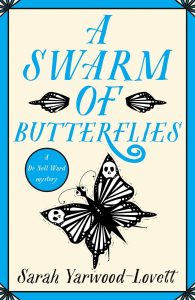 I found Nell to be a likable amateur investigator, and certainly felt for her inability to keep herself out of the investigation. After her previous experience, I wouldn’t have trusted the police either – which makes her decision to date the man who investigated her the first time around a bit questionable. While the ‘torn between two (potential) lovers’ dilemma that Nell is in the midst of isn’t my favorite, it was certainly an interesting twist on the theme to experience it more from one of those two lovers’ points of view instead of Nell’s. I’m hoping that she sticks to the choice she made in future books in the series, but we’ll see.
I found Nell to be a likable amateur investigator, and certainly felt for her inability to keep herself out of the investigation. After her previous experience, I wouldn’t have trusted the police either – which makes her decision to date the man who investigated her the first time around a bit questionable. While the ‘torn between two (potential) lovers’ dilemma that Nell is in the midst of isn’t my favorite, it was certainly an interesting twist on the theme to experience it more from one of those two lovers’ points of view instead of Nell’s. I’m hoping that she sticks to the choice she made in future books in the series, but we’ll see.
I’m certainly planning to see that for myself as I continue my reading of this series. I’ll be picking up A Mischief of Rats the next time I’m in the mood for a cozy-ish, Midsomer Murders-type mystery. I may not have caught up with the series in time to read and review A Trace of Hares on its publication date, but I have a chance of being ready for the following book, A Swarm of Butterflies, by the time it comes out in August!

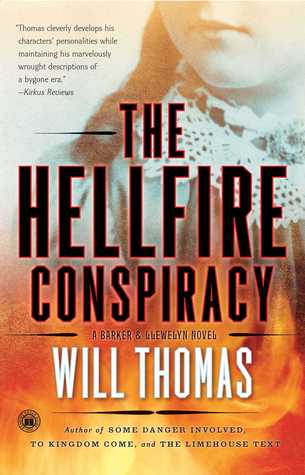 The Hellfire Conspiracy (Barker & Llewelyn, #4) by
The Hellfire Conspiracy (Barker & Llewelyn, #4) by 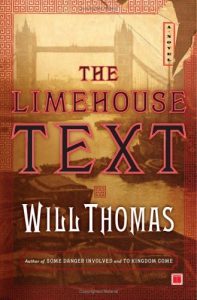 This fourth entry in the marvelously absorbing
This fourth entry in the marvelously absorbing 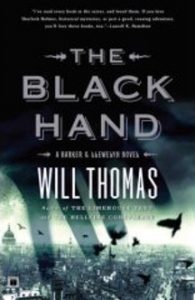 But it’s the characters of Cyrus Barker and Thomas Llewelyn themselves that keep the reader turning pages. Especially in a case like this one, where they go in knowing that the odds of a happy ending are very much against them, but determined to bring as much justice as can be had to all the victims of this atrocity; the living and the dead.
But it’s the characters of Cyrus Barker and Thomas Llewelyn themselves that keep the reader turning pages. Especially in a case like this one, where they go in knowing that the odds of a happy ending are very much against them, but determined to bring as much justice as can be had to all the victims of this atrocity; the living and the dead.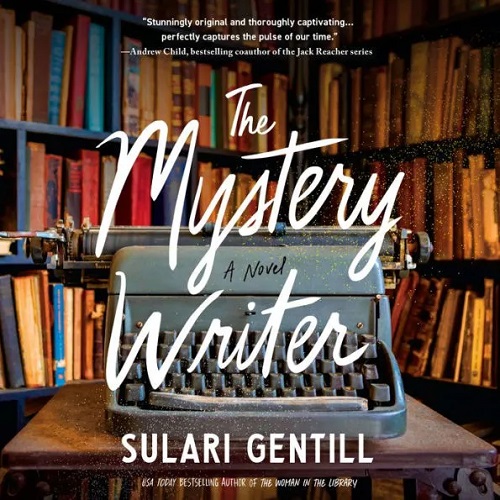 The Mystery Writer by
The Mystery Writer by  Escape Rating B-: I picked this up because I LOVED the author’s previous book,
Escape Rating B-: I picked this up because I LOVED the author’s previous book, 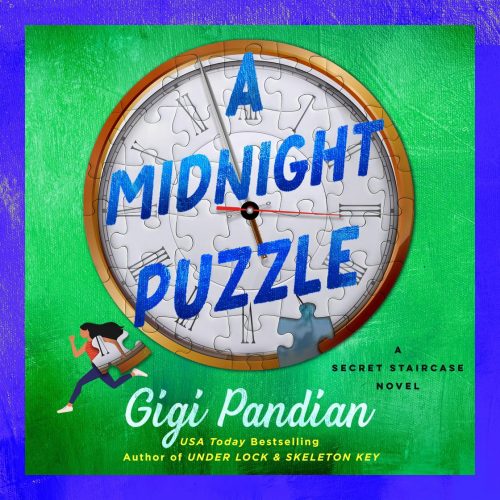 A Midnight Puzzle (Secret Staircase Mystery, #3) by
A Midnight Puzzle (Secret Staircase Mystery, #3) by 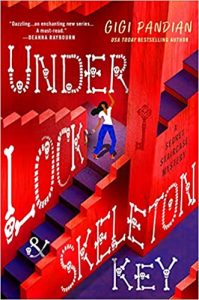 After her adventures – and misadventures – in the first two books in the
After her adventures – and misadventures – in the first two books in the  Escape Rating B: I have to admit that I went into this third entry in the series with a bit of trepidation after the muddle of
Escape Rating B: I have to admit that I went into this third entry in the series with a bit of trepidation after the muddle of 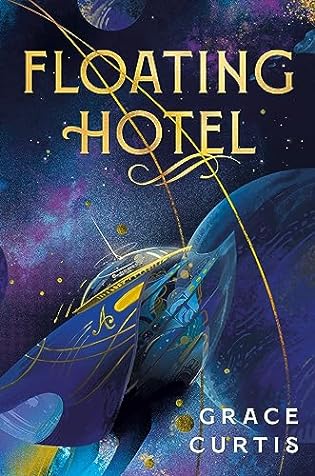 Floating Hotel by
Floating Hotel by  Murder at the Merton Library (Wrexford & Sloane, #7) by
Murder at the Merton Library (Wrexford & Sloane, #7) by  No matter how much, or how sincerely, they promised each other that they wanted a bit of peace and quiet with no murder investigations at the end of the previous book in the series,
No matter how much, or how sincerely, they promised each other that they wanted a bit of peace and quiet with no murder investigations at the end of the previous book in the series, 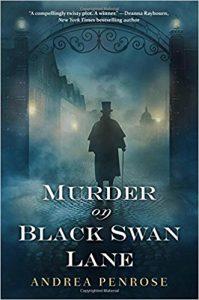 Escape Rating A-: I discovered this series last summer – another time when I was hunting for a good mystery series – and it has been an absolute delight every single time I’ve picked the series back up. But I held onto this entry because I’ve learned that no matter how great a series is – and this absolutely is – it just isn’t a good idea to read the series books too closely together no matter how much I’m tempted.
Escape Rating A-: I discovered this series last summer – another time when I was hunting for a good mystery series – and it has been an absolute delight every single time I’ve picked the series back up. But I held onto this entry because I’ve learned that no matter how great a series is – and this absolutely is – it just isn’t a good idea to read the series books too closely together no matter how much I’m tempted.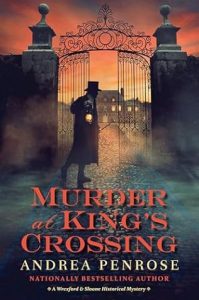 And on my third hand, one of the people caught up in this farrago clearly wasn’t onboard with all the deviltry involved, and could have had made much different choices, and we are confused by and feel for that character almost as much as Charlotte does.
And on my third hand, one of the people caught up in this farrago clearly wasn’t onboard with all the deviltry involved, and could have had made much different choices, and we are confused by and feel for that character almost as much as Charlotte does.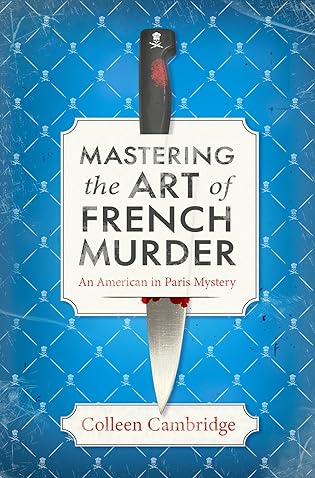 Mastering the Art of French Murder (An American In Paris, #1) by
Mastering the Art of French Murder (An American In Paris, #1) by  And then there’s Julia Child herself, much too boisterous to ever be considered merely a secondary character and certainly not a sidekick, who draws readers in with her true-to-life mannerism, her real, documented history working for the OSS in the war, and her larger-than-life presence on so many wonderful pages of this story.
And then there’s Julia Child herself, much too boisterous to ever be considered merely a secondary character and certainly not a sidekick, who draws readers in with her true-to-life mannerism, her real, documented history working for the OSS in the war, and her larger-than-life presence on so many wonderful pages of this story.
 Glory Be (Glory Broussard Mystery, #1) by
Glory Be (Glory Broussard Mystery, #1) by 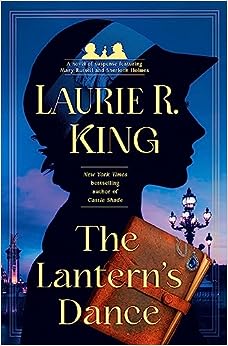 The Lantern's Dance (Mary Russell and Sherlock Holmes, #18) by
The Lantern's Dance (Mary Russell and Sherlock Holmes, #18) by 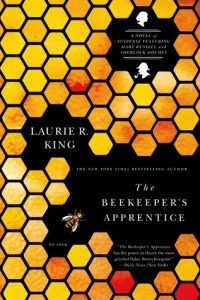 In the end, I did love this entry in the series, although it took me a bit to get there because of that slow start. But now that I’ve finished, I’m left with the impression that this is more of a family story than it is the kind of mystery that has more often been featured in this series, and in the Holmes canon and Russell Kanon in general. On this, the thirtieth anniversary of the publication of
In the end, I did love this entry in the series, although it took me a bit to get there because of that slow start. But now that I’ve finished, I’m left with the impression that this is more of a family story than it is the kind of mystery that has more often been featured in this series, and in the Holmes canon and Russell Kanon in general. On this, the thirtieth anniversary of the publication of 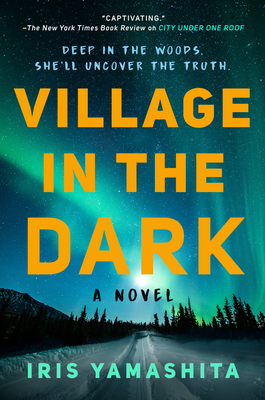 Village in the Dark (Cara Kennedy, #2) by
Village in the Dark (Cara Kennedy, #2) by  Escape Rating B: Part of what made
Escape Rating B: Part of what made